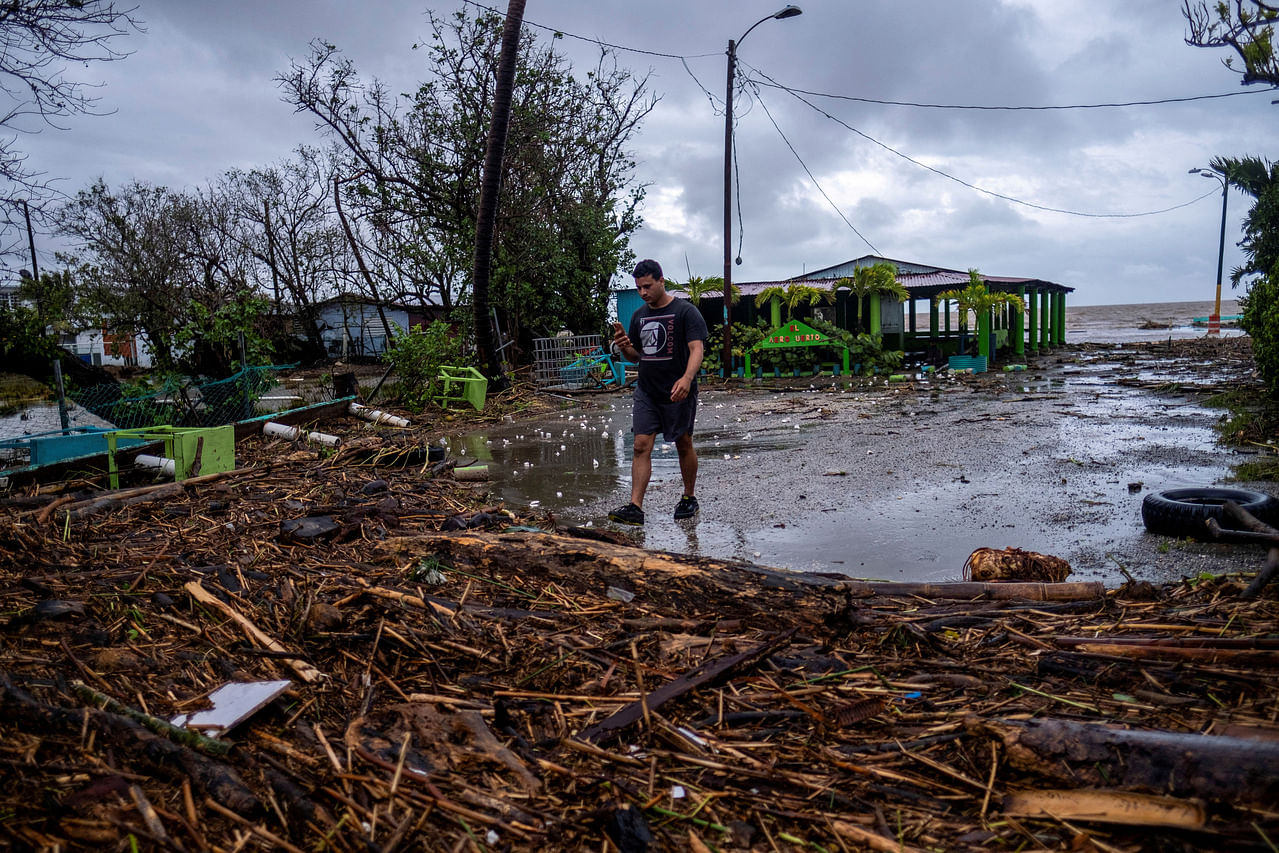HALIFAX, Nova Scotia – Powerful storm Fiona slammed into eastern Canada on Saturday with hurricane-force winds, forcing evacuations, blowing over trees and powerlines, and leaving hundreds of thousands of homes and businesses without electricity.
The US National Hurricane Center (NHC) said the centre of the storm, downgraded to Post-Tropical Cyclone Fiona, was now in the Gulf of St Lawrence after racing through Nova Scotia.
After taking its toll on Nova Scotia and Prince Edward Island, the storm battered Newfoundland, but is now likely to weaken, the NHC said.
Port aux Basques on the southwest tip of Newfoundland declared a state of emergency and is evacuating parts of the town that suffered flooding and road washouts, according to Mayor Brian Button and police.
“First responders are dealing with multiple electrical fires, residential flooding and washouts. Residents are asked to obey evacuation orders and to find a safe place to weather the storm,” the Royal Canadian Mounted Police in Newfoundland said on Twitter.
“This is hitting us really, really hard right now,” Button said in a Saturday morning video posted on Facebook in which he urged residents to stay indoors or, if asked, to evacuate. “We have a fair bit of destruction in town... We do not need anyone else injured or hurt in during this.”
Homes along the coastline were destroyed by the storm surge, CBC reported, showing images of debris and extensive damage in the town.
Fiona, which nearly a week ago battered Puerto Rico and other parts of the Caribbean, made landfall between Canso and Guysborough, Nova Scotia, where the Canadian Hurricane Centre said it recorded what may have been the lowest barometric pressure of any storm to hit land in the country’s history.
Ian Hubbard, meteorologist for the Canadian Hurricane Centre, told Reuters it appears Fiona lived up to expectations that it would be a “historical” storm.
“It did look like it had the potential to break the all-time record in Canada, and it looks like it did,” he said. “We’re still not out of this yet.”
Storms are not uncommon in the region and typically cross over rapidly, but Fiona is expected to impact a very large area.
Hubbard said Nova Scotia and Prince Edward Island still have many hours of strong winds, rain and storm surge to go, and the west coast of Newfoundland would be pounded throughout the day.

While scientists have not yet determined whether climate change influenced Fiona’s strength or behavior, there is strong evidence that these devastating storms are getting worse.
HUNDREDS OF THOUSANDS WITHOUT POWER
Some 79 per cent of customers, or 414,000, were without power in Nova Scotia, and 95 per cent, or 82,000, had lost power on Prince Edward Island, utility companies said. The region was also experiencing spotty mobile phone service. Police across the region reported multiple road closures.
“She was a wild ride last night, sounded like the whole roof was going to blow off,” said Gary Hatcher, a retiree who lives in Sydney, Nova Scotia, near where the storm made landfall. A maple tree was toppled in his back yard but did not damage his house.
Sydney recorded wind gusts of 141 kph, Hubbard said.
The storm weakened somewhat as it traveled north. As of 11am local time, it was over the Gulf of St. Lawrence about 160 km west-north-west of Port aux Basques, carrying maximum winds of 130 kph and barreling north at around 41 kph, the NHC said.
Fiona is expected to maintain hurricane-force winds until Saturday afternoon, the NHC said.
As a powerful hurricane when it lashed Caribbean islands earlier in the week, Fiona killed at least eight and knocked out power for virtually all of Puerto Rico’s 3.3 million people during a sweltering heat wave. Nearly a million people remained without power five days later.
No casualties have yet been reported in Canada.
Canadian Prime Minister Justin Trudeau delayed Saturday’s departure for Japan, where he was to attend the funeral of former Prime Minister Shinzo Abe, to receive briefings and support the government’s emergency response, Press Secretary Cecely Roy said on Twitter.
Canadian authorities sent emergency alerts in Nova Scotia and Prince Edward Island, warning of severe flooding along shorelines and extremely dangerous waves. People in coastal areas were advised to evacuate. REUTERS

